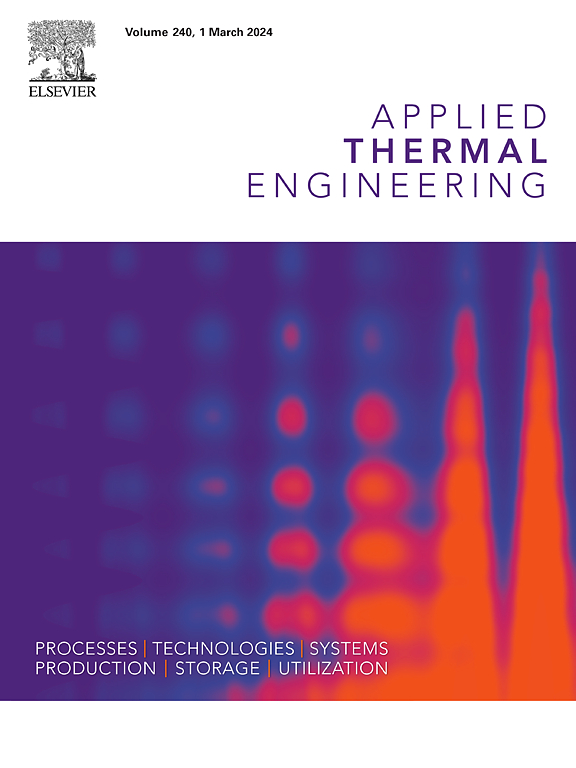Heat transfer characteristics of buried pipes under groundwater seepage in Karst regions
IF 6.1
2区 工程技术
Q2 ENERGY & FUELS
引用次数: 0
Abstract
Utilising geothermal energy through ground-source heat pump (GSHP) systems is a viable option. Karst regions, renowned for their abundant geothermal resources and complex geological structures, present a unique challenge owing to the presence and fluctuations of groundwater, which significantly alter the operational environment of GSHPs. Therefore, it is crucial to explore the mechanisms and performance of GSHPs in such areas. Based on actual Karst geological structures and using similarity theory, a multi-layer experimental model of a ground heat exchanger (GHE) was established in a laboratory. To enhance the GSHP performance, a forced seepage plan for shallow soil layers was proposed. Then, a controlled variable method was employed to investigate the impact of aquifer-related groundwater seepage factors on the heat transfer performance of buried pipes. Thresholds for groundwater velocity and temperature that enhanced thermal performance were identified. Groundwater seepage shortens the recovery time of the temperature field in geotechnical materials and influences the heat exchange intensity based on the flow temperature. This study focuses on a layered heat transfer model and proposes a relationship between aquifer thickness and geotechnical heat transfer, providing theoretical support for the application and optimisation of GSHP systems in Karst regions.
岩溶地区地下水渗流地下埋管换热特性研究
通过地源热泵(GSHP)系统利用地热能是一个可行的选择。喀斯特地区以其丰富的地热资源和复杂的地质结构而闻名,由于地下水的存在和波动,这给地源热泵的运行环境带来了独特的挑战。因此,探索这些地区地源热泵的机制和性能至关重要。根据实际岩溶地质构造,运用相似理论,在实验室建立了地下换热器的多层实验模型。为了提高地源热泵的性能,提出了一种浅层强制渗流方案。然后,采用控制变量法研究了与含水层有关的地下水渗流因素对埋地管道换热性能的影响。确定了提高热性能的地下水流速和温度阈值。地下水渗流缩短了岩土材料内部温度场的恢复时间,影响了基于流动温度的换热强度。本研究建立了分层换热模型,提出了含水层厚度与岩土换热的关系,为岩溶地区地源热泵系统的应用与优化提供了理论支持。
本文章由计算机程序翻译,如有差异,请以英文原文为准。
求助全文
约1分钟内获得全文
求助全文
来源期刊

Applied Thermal Engineering
工程技术-工程:机械
CiteScore
11.30
自引率
15.60%
发文量
1474
审稿时长
57 days
期刊介绍:
Applied Thermal Engineering disseminates novel research related to the design, development and demonstration of components, devices, equipment, technologies and systems involving thermal processes for the production, storage, utilization and conservation of energy, with a focus on engineering application.
The journal publishes high-quality and high-impact Original Research Articles, Review Articles, Short Communications and Letters to the Editor on cutting-edge innovations in research, and recent advances or issues of interest to the thermal engineering community.
 求助内容:
求助内容: 应助结果提醒方式:
应助结果提醒方式:


